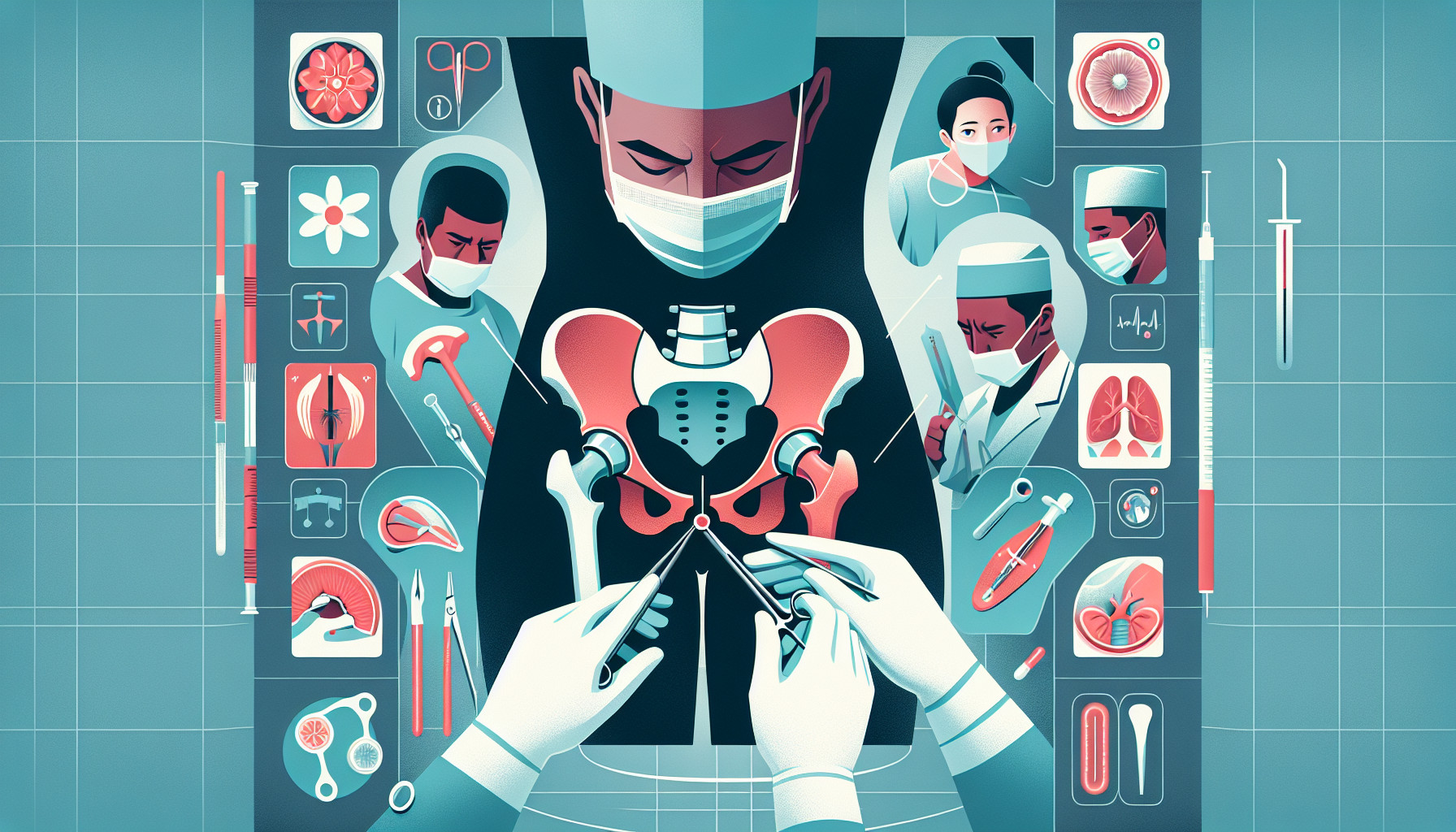Our Summary
This study tested three types of hip replacement implants for dogs to see how well they held up. The implants tested were: one that is pushed into the bone without cement and has a pin in the thigh bone, one that is pushed into the bone without cement and without a pin, and one that is attached with cement.
The researchers used 18 dog leg bones to test how much weight the implants could handle and how much force it took to break them. They found that there was no significant difference in how much the implants moved or how much energy it took to break them. However, they found that the implants that were pushed into the bone and had a pin, as well as the ones attached with cement, could handle more weight before breaking than the one without a pin.
They concluded that the implant with the pin might be a good option for hip replacements in dogs, as it could potentially lower the risk of fracture after surgery.
FAQs
- What types of hip replacement implants were tested in the study?
- Was there a significant difference in the performance of the three types of hip replacement implants?
- Which type of implant was found to be potentially better for hip replacements in dogs and why?
Doctor’s Tip
A helpful tip a doctor might tell a patient about hip replacement is to follow the post-operative instructions carefully, including proper rehabilitation exercises and physical therapy. This will help improve strength, mobility, and overall success of the hip replacement surgery. It is also important to maintain a healthy weight and avoid high-impact activities to protect the new hip joint and prevent complications. Regular follow-up appointments with your healthcare provider are essential to monitor progress and address any concerns.
Suitable For
Patients who are typically recommended hip replacement surgery are those who have severe hip pain, stiffness, and limited mobility due to conditions such as osteoarthritis, rheumatoid arthritis, avascular necrosis, hip fractures, or other degenerative hip diseases. These patients may have tried other non-surgical treatments such as physical therapy, medications, or injections without success. Additionally, patients who are relatively young and active and who are motivated to undergo rehabilitation post-surgery are good candidates for hip replacement.
Timeline
Before hip replacement surgery, a patient typically experiences chronic hip pain, stiffness, limited range of motion, difficulty walking or standing for long periods, and decreased quality of life. They may have tried non-surgical treatments such as physical therapy, medications, or cortisone injections without relief.
After hip replacement surgery, the patient will experience immediate pain relief and improved mobility. They will need to undergo physical therapy to regain strength, flexibility, and range of motion in the hip joint. Over time, the patient should experience a significant improvement in their ability to perform daily activities and return to a more active lifestyle. It may take several months for the hip to fully heal and for the patient to achieve optimal function. Ongoing follow-up appointments with the surgeon are important to monitor the success of the hip replacement and address any issues that may arise.
What to Ask Your Doctor
- What type of hip replacement implant do you recommend for me?
- What are the risks and benefits associated with each type of hip replacement implant?
- How long can I expect the hip replacement implant to last?
- What is the recovery process like after hip replacement surgery?
- Will I need physical therapy after hip replacement surgery?
- How soon will I be able to return to normal activities after hip replacement surgery?
- What are the potential complications or side effects of hip replacement surgery?
- What is the success rate of hip replacement surgery in general, and specifically with the type of implant you are recommending?
- How often will I need to follow up with you after hip replacement surgery?
- Are there any lifestyle modifications I should make before or after hip replacement surgery to ensure the best outcome?
Reference
Authors: Saban C, Roels J, Deprey J, Massenzio M, Viguier E, Cachon T. Journal: Am J Vet Res. 2022 Sep 27;83(11):1-8. doi: 10.2460/ajvr.22.05.0084. PMID: 36136932
